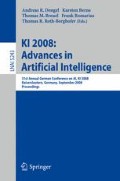Abstract
Music production relies increasingly on advanced hardware and software tools that makes the creative process more flexible and versatile. The advancement of these tools helps reduce both the time and money required to create music. This paper presents research towards enhancing the functionality of a key tool, the drum machine. We add the ability to learn how to groove from human drummers, an important human quality when it comes to drumming. We show how the learning drum machine overcomes limitations of traditional drum machines.
Access this chapter
Tax calculation will be finalised at checkout
Purchases are for personal use only
Preview
Unable to display preview. Download preview PDF.
References
Saunders, C., Hardoon, D.R., Shawe-Taylor, J., Widmer, G.: Using string kernels to identify famous performers from their playing style. In: Boulicaut, J.-F., Esposito, F., Giannotti, F., Pedreschi, D. (eds.) ECML 2004. LNCS (LNAI), vol. 3201, pp. 384–395. Springer, Heidelberg (2004)
Tobudic, A., Widmer, G.: Learning to play like the great pianists. In: Kaelbling, L.P., Saffiotti, A. (eds.) IJCAI, pp. 871–876. Professional Book Center (2005)
Pachet, F.: Enhancing Individual Creativity with Interactive Musical Reflective Systems. Psychology Press (2006)
de Mantaras, R.L., Arcos, J.L.: AI and music from composition to expressive performance. AI Mag. 23(3), 43–57 (2002)
Raphael, C.: Orchestra in a box: A system for real-time musical accompaniment. In: IJCAI workshop program APP-5, pp. 5–10 (2003)
Gusfield, D.: Algorithms on strings, trees, and sequences: computer science and computational biology. Cambridge University Press, New York (1997)
Tidemann, A., Demiris, Y.: Imitating the groove: Making drum machines more human. In: Olivier, P., Kay, C. (eds.) Proceedings of the AISB symposium on imitation in animals and artifacts, Newcastle, UK, pp. 232–240 (2007)
Poliner, G.E., Ellis, D.P.W., Ehmann, A.F., Gomez, E., Streich, S., Ong, B.: Melody transcription from music audio: Approaches and evaluation. IEEE Transactions on Audio, Speech and Language Processing 15(4), 1247–1256 (2007)
Tidemann, A., Öztürk, P.: Self-organizing multiple models for imitation: Teaching a robot to dance the YMCA. In: Okuno, H.G., Ali, M. (eds.) IEA/AIE 2007. LNCS (LNAI), vol. 4570, pp. 291–302. Springer, Heidelberg (2007)
Demiris, Y., Khadhouri, B.: Hierarchical attentive multiple models for execution and recognition of actions. Robotics and Autonomous Systems 54, 361–369 (2006)
Author information
Authors and Affiliations
Editor information
Rights and permissions
Copyright information
© 2008 Springer-Verlag Berlin Heidelberg
About this paper
Cite this paper
Tidemann, A., Demiris, Y. (2008). A Drum Machine That Learns to Groove. In: Dengel, A.R., Berns, K., Breuel, T.M., Bomarius, F., Roth-Berghofer, T.R. (eds) KI 2008: Advances in Artificial Intelligence. KI 2008. Lecture Notes in Computer Science(), vol 5243. Springer, Berlin, Heidelberg. https://doi.org/10.1007/978-3-540-85845-4_18
Download citation
DOI: https://doi.org/10.1007/978-3-540-85845-4_18
Publisher Name: Springer, Berlin, Heidelberg
Print ISBN: 978-3-540-85844-7
Online ISBN: 978-3-540-85845-4
eBook Packages: Computer ScienceComputer Science (R0)

